#radu dracula
Explore tagged Tumblr posts
Text

— in which Vlad Dracula savours the sweetness of a hostage’s life, yet cannot escape the bitterness of his captivity.
word count: 1,705 words
warnings: explicit and implicit mentions of violence; alcohol use
a/n: And we are back with some Vlad Dracula shenanigans! 🎉 A combination of various things (a visit to Türkiye, more research about the Ottoman Empire, and reading Mehmed II’s biography) made me abandon the previously worked-on WIPs to jump back in time a little and craft Vlad’s formative years a bit more. I was initially working on a large piece, but the piece would be large large, so I have decided to divide it into four shorter works. This is the firstborn of the cycle, and I hope you will enjoy it as much as the pain allows. Thank you for stopping by and reading! ❤️️
➨ also available on AO3

May 1443, Laskaris Palace, Nymphaion, western Anatolia, the Ottoman Sultanate
Sitting with his legs crossed upon the rich Anatolian rugs nearly feels like dining amidst the embrace of an open meadow. He can almost envision it — resting in the tall grass beneath the shadow of a chestnut tree and indulging in the creamy delight of fresh sheep cheese, a generous gift from a Wallachian shepherd. The riotous crimson hue shatters his pastoral illusion. His fingers dance upon the fabric, tracing the intricate patterns that are woven into it. Each thread reintroduces him to a culture worlds apart from his own. Getting accustomed to the daily peculiarities of his new life has been a gradual process, one that seemed frightening at first and required a certain degree of caution.
Or so he persuades himself to believe. In the recesses of his mind, he is acutely aware that the reality looks different. He has quickly begun to speak their words, think their thoughts, and dine as they do.
Vlad grasps the still-warm white bread, feeling its heat seep into his skin, then tears the soft, yielding dough into two halves. He sweeps the plate with a smaller piece, immersing the bread in the thick, savoury sauce of honey and sumac. Each bite becomes a small instant of bliss that transports him to a place of simple satisfaction. After a moment of hesitation, he reaches for the ground ginger mixed with honey, now solidified and cut into sticky cubes, and tosses one into his mouth. The sweetness of the honey melts away on his tongue and reveals the comforting heat of ginger that lingers in his throat like a slow-burning ember.
He realises that the memory of pork meat has not crossed his mind for several months.
The table before them is laden with an array of delicious meals, set upon silver and copper plates adorned with intricate oriental patterns. Whatever they desire lies before them, within arm’s reach — mouth-watering spiced meats, roasted pigeons and chicken, vegetables prepared in every imaginable way, the freshest fruits, and sweet delicacies in a spectrum of vibrant colours. Olive oil rests before them in jars, shimmering like liquid gold. If their thirst calls for quenching, they can reach for cups brimming with şerbet, a nectar of hibiscus or pomegranate.
He watches Radu’s small hands reach for the cup, gently drawing it closer so that not a single drop of the sweet liquid spills. Even the most insignificant movement of his younger brother does not escape his vigilant gaze. He observes how Radu’s wide blue eyes remain fixed in trepidation on their Greek teacher seated across them. Vlad’s focus then shifts to the wooden stick beside the teacher, a silent reminder of the punishment that follows every act of disobedience. A mere glance at the piece of wood sends a searing jolt through the soles of his feet. He shifts instinctively, tugging his slippered feet beneath him to seek a fragile sanctuary of his own flesh.
The Ottoman etiquette does not favour conversation at the table, yet Thomas Katavolinos dares to break the tradition. He extends a plate with figs, offering them to Radu with a graceful gesture. “Here, young man. Take some.”
Radu feels an overwhelming fullness, as if he might burst from the sheer abundance within him. With a weary shake of his head, he declines. “Thank you, efendi. I am full.”
Katavolinos smiles, bites into a fig, and returns the plate to the table. The room is swallowed by silence once more.
This is an element of the new life Vlad considers nearly impossible to embrace. He finds it insufferable solely for having it be forced upon him, so stifling and alien compared to the lively, ever-flowing discussions over meals he is familiar with from home. The guests at his father’s court have always been most welcome to sit around the massive table in the dining hall and converse enthusiastically over plates heaped with slabs of roasted pig, the crust glistening in the glow of the hearth. It has been a customary sight ever since he can remember, even before those earliest days in Târgovişte. He also recalls the nights when he would tiptoe down the stairs to spy on Dracul laughing heartily with the few dregătorii he held dear as friends. Goblets filled with wine would sit between them, and the discussions of state affairs would soon give way to nostalgic tales of their shared past when the Voivode’s fate was anything but evident.
Another memory engulfs him, a more intimate one. The Drăculești siblings gathered around their father seated at the head of the table, watching him dig into his meal after a long day besieged by duties. His authoritative voice, softened in those moments by paternal warmth, inquired into each child’s daily progress every evening that he spent at home. And you, Vlad? How are your studies of Chrysostom advancing?
He swallows the painful lump in his throat, burying the memories deep within the recesses of his mind. He fixes his gaze on Radu, tethering his focus to his brother instead. He must remain alert, and this watchfulness anchors him, bestows a sense of purpose upon him. To protect as he has sworn to do preserves his grasp on sanity.
A servant walks in through the grand doorway, pausing beside Katavolinos while cradling a large metal jug. The Byzantian waves his hand adorned with heavy rings, and the young man bows, pouring a crimson liquid into a cup. Katavolinos drinks greedily from it, and Vlad instantly recognises the rich, fruity aroma of the red wine imported from Greece.
Their teacher is yet to embrace the faith of their masters but extols the virtues of the civilised Ottomans into the young brothers nonetheless, urging them to find inspiration in their refined customs. The contrast between these and the so-called Frankish savages is stark, a chasm that the Greek mentor never fails to emphasise. Just last week, they were subjected to an elaborate monologue on the purity of abstinence from spirits. To witness him guzzle the wine with such ravenous intensity that the liquid trickles into his dark beard fills Vlad with a visceral repulsion at the hypocrisy of this man.
The words spill from his lips instinctively, a sudden revelation born from weeks of meticulous studies of the Qur’an under the ever-watchful eye of Mullah Sinan. “They ask you about wine and gambling. Say, ‘In them is great sin and yet, some benefit for people. But their sin is greater than their benefit.’”
Radu’s hand strikes his thigh, but it is too late. The words have already escaped, their energy released into the air, thickening the palpable tension around them.
“I see that you have immersed yourself in your studies with great devotion,” Katavolinos draws the cup from his lips, pausing just enough to speak.
Vlad lowers his eyes, and the expression on his face reveals nothing but unblemished humility. “I always aim to please you, efendi.”
Few pupils have ever earned Katavolinos’ affection. This obstinate Wallachian, however, is one he does not like at all. He despises his brazen demeanour, despises the outbursts of temper that only few punishments can quell. He could order him to a day without food or painful beating, yet the brat would always find a way to rebel — still, he can endure it, he has grown to recognise the patterns of his misbehaviour. What Thomas finds intolerable is the sharp sarcasm that he hones with age, the mockery cloaked in innocence yet cutting deep. It demands immense self-restraint to resist the urge to seize the youth by his shoulders and beat the very soul from his being.
“Despite the advice against intoxication,” Katavolinos’ voice increases in intensity, “even our generous hosts occasionally indulge in this delight. It is not defiance against the proclamations of their faith, rather, it represents a blend of purity and pleasure. One aspect cannot exist without the other. After all, one cannot fully appreciate what is righteous without experiencing what is pleasurable.”
“I know. Mullah Sinan explained the ayah in a similar manner.” When Katavolinos is lulled into the false comfort of thinking the conversation has ended, the young hostage adds, “I am merely confused. I remember your firm cautions against alcohol.”
“What I caution you against as younglings does not apply to me as a grown man. Besides, we aim to cultivate in you qualities superior to our own.”
“Vlad,” Radu’s desperate whine begs him to stop when he sees the blaze in the Greek’s eyes that urges his brother to choose his next words wisely.
“And you were right. Alcohol is a poison for the mind. The greater the consumption, the more it weakens the intellect.”
“Are you trying to insinuate something?”
“I would not dare, efendi. But if you observe any similarities in your own behaviour…”
All that follows happens in a whirlwind of motion, so swift and fierce that not even Vlad could foresee it. The wooden stick that rested idly on the floor just a moment before now finds itself in Katavolinos’ grip. The Byzantian, no longer lounging upon the silk cushions, rises to his full height and towers over him. Vlad feels the heavy rings pressing into his skull as their teacher seizes a fistful of his hair and wrenches his head to the side. He is cast to his knees, feeling the soft slippers slip from his feet, exposing the soles to his prisoner.
The pain radiating through his feet is sharp and all-consuming, causing white flecks to dance behind his tightly shut eyes. Radu’s cries are deafening, yet they come muffled to his ears, dulled by the agony that subdues his senses. All else fades away. There is only him and the searing achiness that consumes him. When he is left alone and kneeling on the Anatolian rugs, the sharp stabs of pain give way to a deep, resonant throbbing. Each attempt to rise is met with betrayal by his own body, dragging him back to his knees.
The whimpers that invade his ears irritate him. He is almost ready to lash out at the pitiful sound. Only then does he realise the sounds emanate from his own constricted throat.

We know that the Drăculești brothers’ studies were adjusted to a similar curriculum they would be exposed to back home, especially in the studies of the Eastern Orthodox faith, rhetorics, languages, their own history and etiquette, etc. This was important to the Ottomans as they needed the possible pretenders to be prepared for their future duties in their countries. However, the boys received a dual education, studying as per Ottoman customs alongside the sultan’s sons or sons of Ottoman elites, as hostages often ended up working in the Ottoman administration. The brothers were never made to convert to Islam (because of the possibility that they might secure the Wallachian throne one day), and any references I make to their rigorous studies of the Islamic religion are my creative choice. I believe there could be a high possibility that they were taught at least the basics to understand better the sociocultural references and environment they lived in.
We do not know anything about their European teachers, only that they were most likely former Byzantine elites. Thomas Katavolinos (a Greek secretary of Mehmed II) is indeed a figure that appears in Vlad’s later life, but to deepen the plot and make it more dramatic when the time comes, I have decided to tie him into the brothers’ life much sooner. Therefore, his role as their tutor is fiction only. This is also an idea partially borrowed from the second season of Rise of Empires: Ottoman where Vlad calls both Hamza Bey and Katavolinos his teachers — it is a detail that has a lot of potential and can leave a great impact on the plot. You shall see when I get to it. ;)
Even though many people are familiar with the popular version that Vlad was tortured all the time and even imprisoned in a fortress while staying with the Ottomans, his stay there was far less horrible than this. He and Radu were treated with the dignity that was expected to be given to them as children of a foreign ruler, and so neither of them could be treated as a criminal. However, because we know Vlad was a strong-willed and rebellious hostage, he probably underwent some kind of physical punishment for his misbehaviour. Bastinado was, unfortunately, one of the most common disciplinary punishments of the era.
Despite the Islamic teachings against alcohol consumption, the Turks are a bit of an anomaly in the Muslim world (even though only around 20% of Turks drink alcohol regularly). It was no different during the Ottoman era. From historical sources, we know that Murad II did indulge in spirits — the information about his death varies, but one version states that he died stricken by apoplexy after a drinking bout. We also have historical information about Mehmed II’s own indulgence, one even resulting in a violent encounter with Vlad’s brother Radu.
Also, here is a useful little dictionary to help you understand some of the mentioned things! Sharbat (or şerbet) is a sweet drink prepared from fruit or flower petals, usually served chilled. It can be served in concentrated form and eaten with a spoon or diluted with water to create the drink. Efendi is a Turkish title of respect or courtesy, meaning sir, lord or master. In the Ottoman era, it was most commonly used to address a person with a higher form of education. In the context of this fic, the brothers use it as a title of respect towards their teacher. Mullah is an honorific title for Muslim clergy and is also used for a person who has higher education in Islamic theology and sharia law. They would educate the sons of the Ottoman elite in religion. Ayah is the name for a verse in the Qur’an.
#vlad dracula#vlad drăculea#vlad tepes#vlad ţepeş#vlad the impaler#radu dracula#radu drăculea#radu the handsome#radu cel frumos#radu bey#thomas katavolinos#historical fiction
4 notes
·
View notes
Note
Silly Game Time: We need more disco ballads about historical figures in the vein of "Ra-Ra-Rasputin" by Boney M. Who do you think someone should write an absolute banger of a disco ballad about?
Radu the Handsome, Vlad the Impaler's twink little brother.

76 notes
·
View notes
Text
Dracula a Love Story characters and their historical counterparts
Vlad - Vlad III, also known as Vlad the Impaler and Vlad Dracula (Vlad Țepeș), was a 15th-century ruler of Wallachia, notorious for his brutal punishment methods, particularly impaling his enemies. He defended his realm from the Ottoman Empire and became a national hero in Romania.


Mehmed - Mehmed II, also known as Mehmed the Conqueror (Mehmed bin Murad), was the Ottoman Sultan who famously captured Constantinople in 1453. Historically, Mehmed II clashed with Vlad Dracula during campaigns in Wallachia, adding political depth to their enmity.


Radu - Radu III, also known as Radu the Handsome, was the younger brother of Vlad the Impaler and historically served as a ruler of Wallachia under Ottoman control. His rivalry with Vlad is well-documented, as Radu supported the Ottomans while Vlad opposed them.


Sultan Murad - Murad II was a formidable ruler who expanded Ottoman control in the Balkans and fought against various European coalitions. His campaigns laid the groundwork for the later conquests of his son, Mehmed II.


Gjerg Skanderberg - Gjergj (Gjergj Kastrioti), commonly known as Skanderbeg, was an Albanian feudal lord and military commander who led a rebellion against the Ottoman Empire. Skanderbeg's legacy as a defender of Christian Europe against the Ottomans is similar to how Vlad Dracula is viewed by some in Romania. Both are celebrated as national heroes who fought for independence and freedom in their respective lands.


Erzsebet (Erzsi) - Erzsébet Báthory (Countess Elizabeth Báthory de Ecsed), also known as The Blood Countess or Countess Dracula, was a Hungarian noblewoman from the late 16th and early 17th centuries, infamous for allegedly torturing and killing young girls. She is considered one of the most prolific female serial killers in history.


#romance club#rc dracula a love story#rc vlad#rc mehmed#rc radu#rc murad#rc gjerg#rc erzsi#Just a little history lesson
50 notes
·
View notes
Text
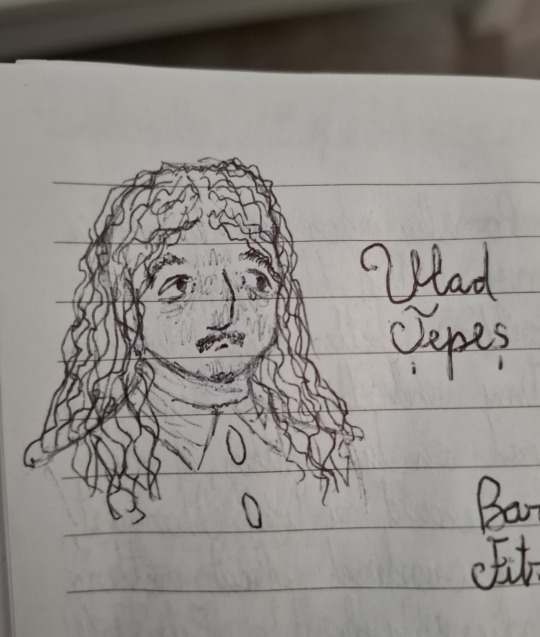
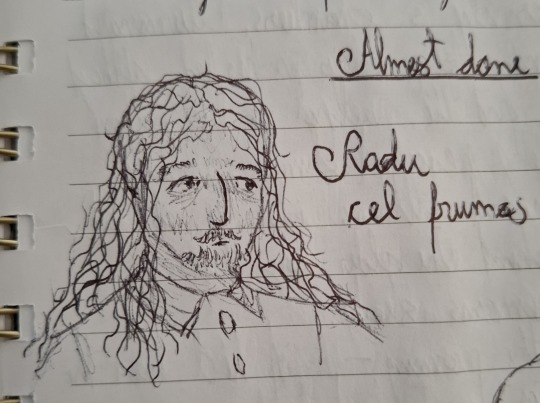
Some doodles I did at school of Vlad and Radu. It's my first time drawing them, so yeah.
Also, no one talks about what an experience it is to draw a historical figure that doesn't have contemporary portraits. My boy Radu does not have a depiction from when he was alive, so it's all just guess work. 😔
Also also, failed attempt at drawing Vlad that looks more like my grandpa ------->
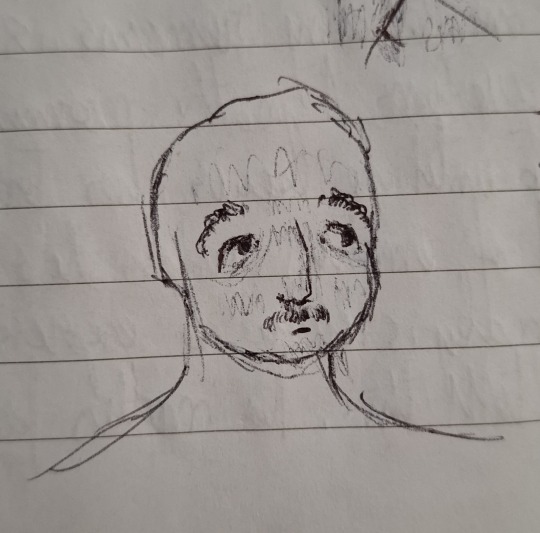
My grandpa does have some hair on his head though. I just gave up when it wasn't looking right.
#vlad țepeș#vlad the impaler#radu cel frumos#radu the beautiful#dracula#romanian history#school doodles#doodles#traditional art#dracula brothers#I want a show just about the drama between these two#Why is everything I'm into always involving siblings fighting each other 😅#art#my art
13 notes
·
View notes
Text


Umm...

#personal rant#spoiler#screenshots#screenshots spoiler#screenshot#rc vlad#rc radu#rc dracula a love story#rc dls#what would radu think of his older brother in a poly
5 notes
·
View notes
Text
McNally and Florescu's influential book, identifying Stoker's Dracula with the Wallachian ruler Vlad the Impaler, appeared the same year as Leonard Wolf’s A Dream of Dracula. Thus, seventy-five years after Stoker’s novel, American writers reincarnated Dracula as monarch in both the unconscious and medieval history.
Our Vampires, Ourselves by Nina Auerbach
4 notes
·
View notes
Text
The Țepeș family was nuts. One went down as “the impaler” and is the model of the quintessential western vampire. The other went down as “the handsome” and had a totally opposite but also very fucked up life. And there was at least one other brother who got buried alive but those r the notable ones
10 notes
·
View notes
Text







Rise of empires: Ottoman (2020) - Vlad and Dimitrie being best trolls
#rise of empires: ottoman#vlad dracula#dimitrie#daniel nuță#radu micu#we do not ship them at all#nope
12 notes
·
View notes
Text
A thought I have to spill into Tumblr void:
What if "the most heinous act" that Vlad is referring about in Season 4 isn't actually about Lale, but... Radu?
Because History knows that these two didn't remain loving brothers forever, due to Mehmed's influence.. 🤔
(Also Mehmed appointed Radu as voievode of Wallachia when Vlad was captured by Matthias Corvin)


20 notes
·
View notes
Text
Dracula and the Sultan - an LGBT romance!
How the brother of the real life Dracula ended up in an LGBT romance with an Ottoman sultan - TV historian Tony McMahon reveals all
This has to be one of the most unlikely gay relationships in history. An LGBT romance between the younger brother of the real Dracula – Vlad the Impaler – and the Ottoman sultan, Mehmed II. Dracula’s kid brother, Radu the Handsome (yes, he really was called that), overthrew Vlad with help from Mehmed. The two men had formed the most intimate of bonds in the royal bedchamber. Sultan of an…
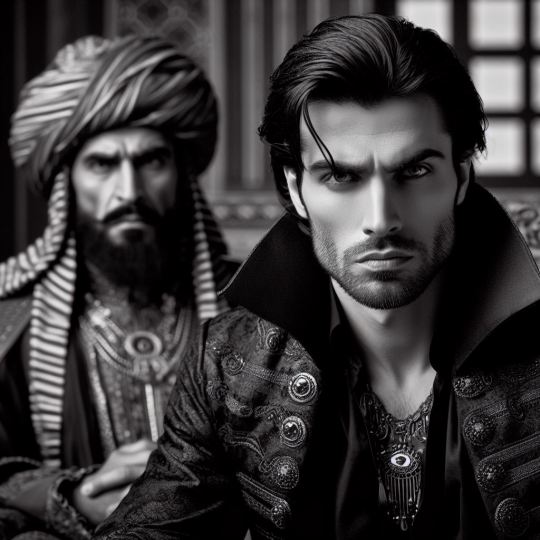
View On WordPress
#Dracula#gay#Homosexual#LGBT#magnificent#Mehmed II#Mehmet#Ottoman#Radu the Handsome#sultan mehmed#Vlad the Impaler
3 notes
·
View notes
Text
Dracula and the Sultan - an LGBT romance!
How the brother of the real life Dracula ended up in an LGBT romance with an Ottoman sultan - TV historian Tony McMahon reveals all
This has to be one of the most unlikely gay relationships in history. An LGBT romance between the younger brother of the real Dracula – Vlad the Impaler – and the Ottoman sultan, Mehmed II. Dracula’s kid brother, Radu the Handsome (yes, he really was called that), overthrew Vlad with help from Mehmed. The two men had formed the most intimate of bonds in the royal bedchamber. Sultan of an…
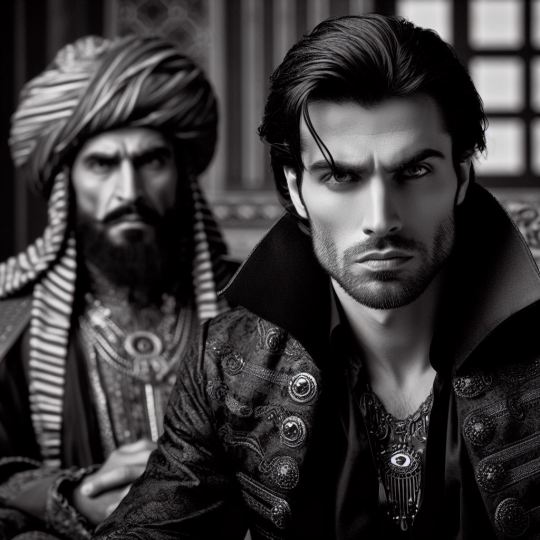
View On WordPress
#Dracula#gay#Homosexual#LGBT#magnificent#Mehmed II#Mehmet#Ottoman#Radu the Handsome#sultan mehmed#Vlad the Impaler
1 note
·
View note
Text
How fucked up people can be when someone reads the excerpt from Chalkokondyles that explicitly states things like:
“it happened that the sultan was almost killed by the boy when he had wanted to have sex with him” (explicitly mentioned r*pe attempt),
“he [Radu] fought him off and refused to consent to intercourse with him” (explicitly mentioned lack of consent on one side),
and “the sultan kissed the unwilling boy, who drew a dagger and struck the sultan on his thigh” (explicitly mentioned physical attack of the victim in order to protect himself from being r*ped),
and then proceeds to glorify Radu’s relationship with Mehmed and portray them as happily and passionately in love?
And Radu was thirteen when this happened. Fucking. Thirteen.
#radu dracula#radu the handsome#radu cel frumos#very much giving a criminal offensive sideeye to elveoart who took chalkokondyles to convince others that this encounter was super cute#IT WAS NOT#like girl. stop it. get some help.#also has anyone ever thought that radu becoming mehmed's lover was not a romantic gesture but rather a way of surviving?#what the fuck is going on with people who romanticise r*pe like—#this is why r*pe victims can never find justice
5 notes
·
View notes
Text
Oh
Oh no!
Oh no no no!
That's too hilarious, and therefore correct








#young dracula#young dracula the count#see my headcanon has always been that the Count's name is Radu#meaning 'Happy' / 'willing'#which I can see being the most embarrassing name a vampire can have#also because Vlad the Impaler's brother was called Radu and was known as Radu the beautiful#and who allegedly had an intimate relationship with Sultan Mehmed II#fun story: Mehmed was in the middle of propositioning Radu when Radu stabbed him in the leg#Radu was later found halfway up a tree#Turns out Radu thought Mehmed was about to try to kill him#Allegedly Mehmed finished his proposition and Radu climbed down from his tree#and /Fade to black/#and when I read that I just knew this was Countie-coded
41 notes
·
View notes
Text
Vlad is better than me...


















As an older sister this scene really pissed me off because I know what it means to feel responsible for your siblings. Your two best friends just died because of the Sultan, and you decide to leave your little brother at the palace with him?! Radu is just a kid and leaving him behind with the very man responsible for so much death and destruction is beyond reckless. No, I don't care about Esme because let's be for real Radu loved and respected Mehmed more than he did her and Vlad. And that's sad.
Like are you serious?! If that were me, I would've snatched my sibling up and thrown them on the horse myself no questions asked 🤨.

8 notes
·
View notes
Text
Dracula's Guest
AKA, What Do You Mean There's a Deleted Scene of Dracula Licking Jonathan?
"Dracula's Guest" is a short story written by Bram Stoker. It was first published posthumously by his widow, Florence Balcombe Stoker, in the 1914 anthology Dracula's Guest and Other Weird Stories.
Was "Dracula's Guest" Part of Dracula?
It is unknown exactly when Stoker wrote "Dracula's Guest." His earliest notes for Dracula are from 1890, and in these notes the second and third chapters of Dracula clearly reference the events of "Dracula's Guest."
Some Dracula scholars believe that "Dracula's Guest" was originally intended as the first chapter of Dracula, among them Radu Florescu and Raymond McNally. Other scholars, such as Robert Eighteen-Bisang, argue that "Dracula's Guest" was written later as an evolution of plot ideas cut from Dracula proper, rather than being an excised chapter. Clive Leatherdale argued that "Dracula's Guest" was intended as a completely separate story from the main novel, but at the time of Leatherdale's writing, Stoker's earliest notes were not available.
What Happens in "Dracula's Guest"?
The plot of "Dracula's Guest" is as follows: An unnamed English narrator leaves the Quatre Saisons in Munich to ride through the countryside. The coachman is eager to return before nightfall, as it is Walpurgis Night. The narrator asks to take a detour down a side road. The coachman refuses, stating that there is an unholy, abandoned village that way. The narrator leaves the carriage and decides to walk to the village on his own, despite the coachman's pleas.
In the distance, the coachman encounters a "tall, thin man" (presumably Dracula) walking down the road, which causes the horses to panic and break free of the carriage in their rush to escape. After witnessing this, the narrator continues down the side road until a heavy snowfall forces him to take shelter under nearby cypress trees.
Once the snow stops, the narrator realizes he is at the edge of a graveyard. There is a white marble tomb with a large iron stake going through the whole of the structure. This is the tomb of Countess Dolingen of Gratz, Styria, who sought and found death in 1801.
The storm resumes, now pelting the narrator with hail rather than snow. He leans against the tomb and its door opens. Lightning reveals a beautiful woman inside the tomb, seemingly sleeping. The tomb is then struck by lightning, throwing the narrator back out into the hailstorm.
He loses consciousness and wakes to find a massive wolf sitting on his chest, licking his throat. The narrator swoons again and is eventually roused by the wolf yelping. The wolf alternates between licking the narrator and barking until a search party nears, at which point the wolf runs.
The search party is made up of German soldiers, some of whom assist the Englishman while the others attempt to shoot the wolf. The narrator's throat is raw and abraded from the wolf's tongue.
The narrator is then returned to the Quatre Saisons, where the maître d'hôtel explains that he gathered a search party after receiving a telegram from Dracula asking that the hotel take great pains to ensure the narrator's safety, as "he is English and therefore adventurous."
The narrator concludes that he is under some form of mysterious protection that saved him from hypothermia and death by wolf.
How Does This Fit Into Dracula?
According to Leslie S. Klinger's The New Annotated Dracula, Stoker's 1890 notes state that the second chapter of the novel is set in Munich, after a first chapter consisting of correspondence between Dracula and the President of the Law Society, aiding in the Count's search for a solicitor. This second chapter would have involved Jonathan Harker staying at the Quatre Saisons hotel and visiting a museum and a morgue as well as experiencing an "adventure snowstorm and wolf" on 27 April.
In Stoker's manuscript for Dracula, containing certain lines missing from the published text, Jonathan speaks with Dracula about his experiences in Munich. First on 5 May, when Harker finds himself surrounded by wolves, there is a line "As I looked at them I unconsciously put my hand to my throat which was still sore from the licking of the gray wolf's file-like tongue."
At the dinner table during the same entry, Jonathan writes "He seemed very interested especially at my adventures in Munich. When I told him of the coming of the soldiers he appeared quite excited and exclaimed." Later, the manuscript continues "When I told him of the wolf which lay on my chest saving my life in the cold and whose howling seemed to direct the soldiers to where [illegible]."
Again on 5 May, in the original manuscript the text "As the Count leaned over and his hands touched me, I could not repress a shudder" continued with the line "It may have been that there is a morbid susceptibility about a wound and that we fear any approach to touching it—or it may have been that the Count leaned over me." This is in reference to the abrasion on Jonathan's throat from the wolf's tongue.
On 16 May, Jonathan encounters the vampire women and notes the blonde seems familiar. "I seemed somehow to know her face, and to know it in connection with some dreamy fear, but I could not recollect at the moment how or where." In the original manuscript, Jonathan realizes after Dracula's arrival that this is the woman he saw in Countess Dolingen's tomb: "As he spoke I was looking at the fair woman and it suddenly dawned on me that she was the woman—or her image—that I had seen in the tomb on Walpurgis Night."
Also in the manuscript, as the blonde leans over Jonathan, he states "She started back and pointed to my throat where the rubbing of the wolf's tongue still left it red. Her eyes flashed angrily with bitter dis[illegible, likely distaste]."
How Does "Dracula's Guest" Differ From Dracula?
In "Dracula's Guest," the narrator is much more arrogant and belittling of the locals than Jonathan Harker is in Dracula. It is possible that Jonathan was originally envisioned as a more abrasive character, or that this misadventure humbled him in his dealings with the landlady in Bistritz.
The narrator of "Dracula's Guest" cannot speak German at all: "There was just enough of English mixed with the German for me to understand the drift of his talk...I tried to argue with him, but it was difficult to argue with a man when I did not know his language." In fact, in the original first chapter discussed in Stoker's notes, Dracula specifically requested a solicitor who spoke no German, presumably to prevent his employee from being frightened off by local gossip.
Oddly, the narrator is able to read both the German and Russian engraved on the tomb, as well as understand the soldiers in the search party. Perhaps he memorized the text and had it translated later, and perhaps the soldiers spoke English even to each other for his benefit.
By contrast, Jonathan Harker speaks a "smattering of German" and does not "know how [he] should be able to get on without it."
Is The Wolf Dracula?
Klinger argues in The New Annotated Dracula that the wolf who warms the narrator and yelps to attract the search party cannot be Dracula, as Dracula is later surprised to hear of Jonathan's experiences in Munich. Klinger suggests that the wolf is merely commanded by Dracula instead.
However, if Dracula were commanding the wolf, he would still know what had happened in Munich. It's extremely likely that Dracula's surprised excitement was an act. Given that the narrator saw a "tall, thin man" (matching both Jonathan and Mina's descriptions of Dracula) on the same day that he encounters the wolf, I would argue that this is definitely Dracula creeping on his adventurous English solicitor to make sure he can't die of stupidity before he gets Dracula's real estate finalized.
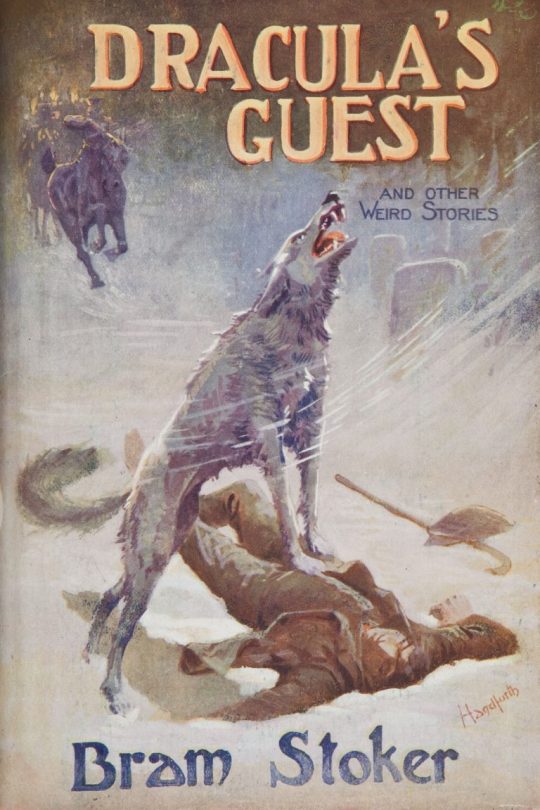
119 notes
·
View notes
Text




No way! They're all grown up 🥹💕💕💕
#esme became a blonde lol#and radu somehow found his way to a hair straighter 😅#rc esme#rc radu#im glad they got together ❤️#personal rant#spoiler#screenshots#screenshots spoiler#screenshot#rc dracula a love story#rc dls
1 note
·
View note